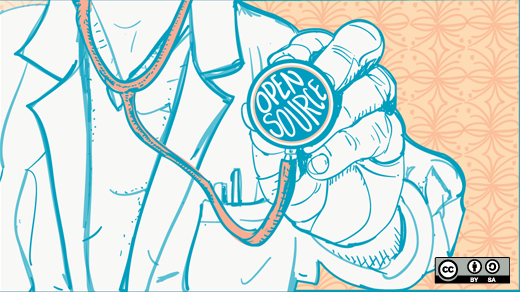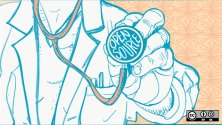The southern African country of Mozambique suffers under the most extreme challenges for resource-poor countries: economic instability, political strife, civil unrest, corruption and crime, unreliable infrastructure (such as transportation and telecommunications), and a large-scale HIV epidemic that has yet to be declared under control. The United Nations positions Mozambique’s Human Development Index at number 180 out of 188 countries, placing it as the eighth lowest nation in the world for the three basic dimensions of human development: a long and healthy life, access to knowledge, and a decent standard of living. Over 11 percent of the adult population is infected with HIV, and approximately one in 10 children will die before their fifth birthday. Compounding Mozambique’s problems is a serious shortage of trained medical staff, with only 64 doctors and nurses per 100,000 people.
The nation has enormous need and opportunity for improving its healthcare system and the lives of its residents. In the face of their crisis, Mozambique is working to equip its medical clinics across the nation with an electronic medical records system (EMR). Mozambique believes an EMR can empower clinicians to give high-quality and consistent care to those most in need, while allowing the country to reap the insights of comprehensive reporting for responsive public health decision making.
The challenge
Medical record keeping in Mozambique was a collection of poorly managed paper records and siloed databases with limited functions. Systems were not kept up to date, were not standardized in the manner they were developed or maintained, were not harmonized in the data they collected, and were only used for reporting indicators back to funders. Because the data were siloed and not standardized, the country’s health ministry and clinical care organizations could not access and use information to see if clinical care was being properly administered, if programs were effective, if the sick were being treated, or if populations were missing from key care.
A local and collaborative model: The eSaúde community
In a country like Mozambique, resources for programming, system implementation, and system maintenance and support are severely limited. The U.S. Government’s (USG) President’s Emergency Program for AIDS Relief (PEPFAR), with The Centers for Disease Control and USAID, funds six clinical partners and two technical partners to support the Mozambique Ministry of Health to provide care and treatment to the 1.5-million HIV patients. In 2014, a decision was made to have a comprehensive EMR that would be suitable for national use. The partners determined that OpenMRS had unique qualities as both a software product and as a global community that could be leveraged quickly by the Ministry and be sustainable for long-term use after the USG no longer financially supported the country’s programs. Because programming and implementation staffing were spread across organizations, they formed a Mozambique-based OpenMRS community called eSaúde for collaboration and knowledge sharing on the project. The larger global OpenMRS community would serve as both a model for the collaboration and as a mentor for learning and developing OpenMRS software.
“Our overarching goal as health workers is to make sure every person, across the globe, has access to healthcare services," said Jan Flowers, technical program director of the University of Washington's Clinical Informatics Research Group and a director in the OpenMRS leadership team. "The only way we know that is by having reliable data. Otherwise we just don’t know what is being effective or who we are reaching.”
OpenMRS is an open source platform with foundational components for building an EMR: a core healthcare data model, application programming interface (API), and the ability to customize data collection and reporting tools to the local context. A central tenet of the project is that local partners, organizations, and developers must drive implementations in order for them to be successful. With the eSaúde community, the Mozambicans have a shared vision and a noncompeting environment, so they work together on the EMR effectively. They define the requirements, centralize resources to customize OpenMRS for their context, and share the knowledge and tools for performing the implementation and providing ongoing support.
“It’s not just that we are impacting the lives of the patients. It’s also that we are building the capacity for the local participants to own the system, to build them the way they need,” said Flowers. “Good jobs are created and skills are learned.”
The results
Today the eSaúde community consists of 114 Mozambique-focused software developers, implementers, program managers, and Monitoring & Evaluation (M&E) folks working towards a common platform of health information systems to improve the lives of Mozambicans. The eSaúde distribution of OpenMRS is now deployed in over 200 facilities across seven provinces in Mozambique, impacting hundreds of thousands of lives.
In 2014 and 2015, with guidance from the global OpenMRS community, the eSaúde community produced an impressive collection of code, best practices, and interoperability tools. Some of their accomplishments include an implementation toolkit that enables those in the field to implement the solution quickly in a standardized and supportable manner, and data exchange tools that allow data from facilities to be aggregated and made available at the provincial and national levels. The community also created an OpenMRS Point of Care user interface for HIV and Maternal and Child Health (MCH) care and treatment tools in OpenMRS, and an OpenMRS SMS appointment system to remind patients of their appointments.
A compelling example of the benefits of the system is with MCH. On paper, without a national person identifier, tracking patients between services was unreliable, if not impossible. Once a baby was born there was no way to track if the baby was tested, enrolled, and received treatment, which was (and is) incredibly crucial to ensure a productive life for the child. With the new eSaúde OpenMRS implementation, clinicians and program directors are able to see the transition from pre- to post-natal care and monitor the child through the Child-At-Risk program.
2015 was a watershed year for eSaúde. The local community hosted the OpenMRS Annual Implementers Meeting in Mozambique, bringing senior experts in medical informatics and software development to the country. Because of Mozambique's experience with OpenMRS, the country has gone from one with no capacity for building and using software to support direct clinical care to one that is now building and supporting an enterprise-level health architecture that includes OpenMRS.
The future
ESaúde is now working toward matching the CDC’s goal of having 80 percent of 1.5-million HIV patients in Mozambique on treatment and monitored by the eSaúde EMR. The community is also working toward ambitious functionality improvements for current ongoing implementations, including HIV-testing tools that would allow community health workers to identify, refer, and track patients into clinics for treatment, reducing the number of patients lost to follow-up.
The eSaúde community continues its work with the global OpenMRS project. Its members are becoming more active participants in OpenMRS, with some even becoming OpenMRS Google Summer of Code mentors, partners in other countries OpenMRS works, and contributors to ideas for the core codebase and modules. The greatest by-product of an open and collaborative project like OpenMRS is the capacity to help other countries improve their healthcare. Instead of reinventing their own systems, future national implementations can use the innovation and passion of the eSaúde group. An audacious initial goal now is fully in the grasp of the people of Mozambique.
If you are in the healthcare IT world, please consider joining or donating to OpenMRS. Together, we will achieve many more audacious goals.






Comments are closed.